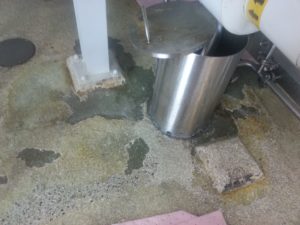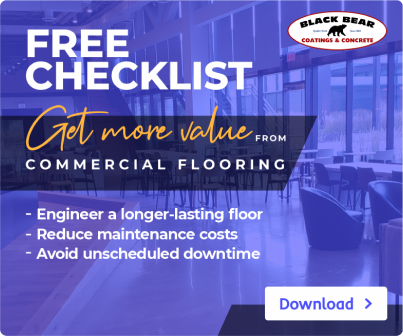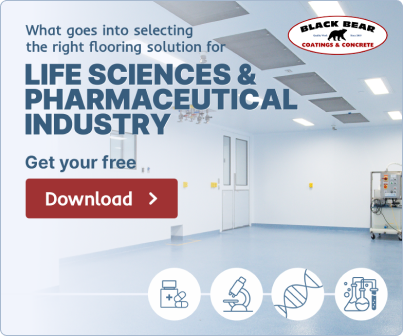When choosing between
Considerations Which Can Affect The Maintenance Costs Of Your Flooring
1 – Susceptibility to physical damage
Any flooring will look great immediately installation – but how will it look a year or three down the road? Enduring numerous objects and organic materials dropped on it and seeping into the substrate, it’s important to understand how these stressors may ultimately corrode or destroy your floor. The cheapest option up front, may end up costing you much more than you bargained for. Materials like vinyl tiles are cheap to install, but they can also be easily damaged and will need to be repaired frequently. A tougher epoxy or resinous surface will greatly cut down on your need for repairs.
2 – Effect of dirt on the flooring
In an ideal world, you flooring is going to be swept, vacuumed, or buffed on a regular basis – but what if it’s not? A buildup of dirt won’t just be unsightly, it can directly harm the flooring material – thus, once again eroding the system and compromising its integrity. Many wooden floors are easily damaged by dirt and grime which is why they necessitate frequent repairs. Concrete coatings on the other hand can be easily maintained and protect the substrate from the effects of dirt which require less frequent repair as a result of grime.
3 – Chemical resistance
How well can your floor stand up against spills more common for your industry? Not every commercial space handles hazardous materials. However, some consumer products – like many colas – are caustic enough to harm flooring if they aren’t immediately cleaned. Engineering resinous floors that are formulated to better protect against harmful organic compounds will reduce the need to repair frequently.
4 – Sun damage
Your skin isn’t the only thing that needs protection against the sun. If your commercial flooring is exposed to direct (or even indirect) sunlight, a lesser floor material will result in fading over time. This discoloration will need to be addressed in repairs unless engineered to be resistant to UV light. The upfront cost may increase, but the cost savings will be realized over time.
Concrete Coatings Are a More Cost-Effective Option for Commercial and Industrial Floors
Keep your TCO as low as possible by value-engineering the right floor from installation or initial repair. Concrete coatings and resinous floor systems are extremely resistant to physical damage, and capable of handling even heavy traffic from mobile workspaces and weighty vehicles. Coatings can be formulated to be chemical resistant, UV resistant, and are simple to maintain with average cleaners. Unless compliance regulations in place require chemical sanitization processes, most concrete coatings can be managed with ease. This ease of maintenance helps avoid unplanned repairs that could eat away at your bottom line.
There’s a concrete flooring solution to fit any business need but there are only a few expert installers that can provide the ideal product. Black Bear Coatings & Concrete has partnered with commercial and industrial clients to provide longer lasting floors. Contact us for a free on-site consultation and to learn how we help you value-engineer better flooring solutions for your specific business.



